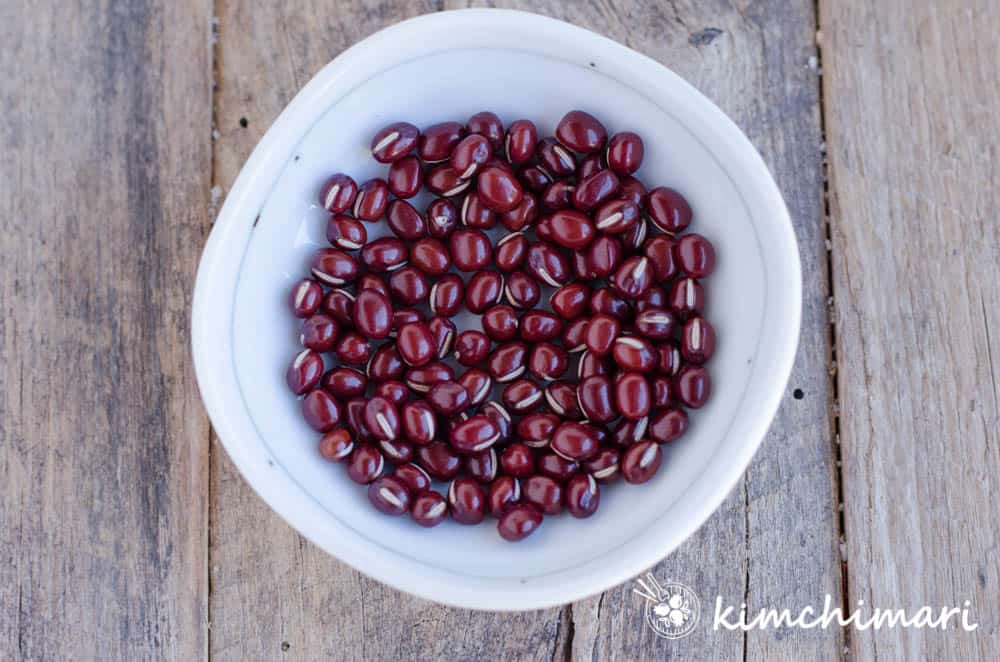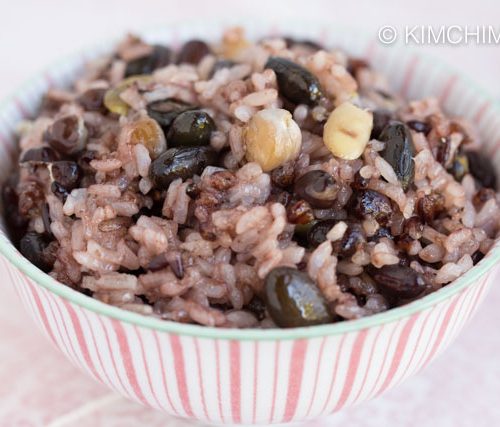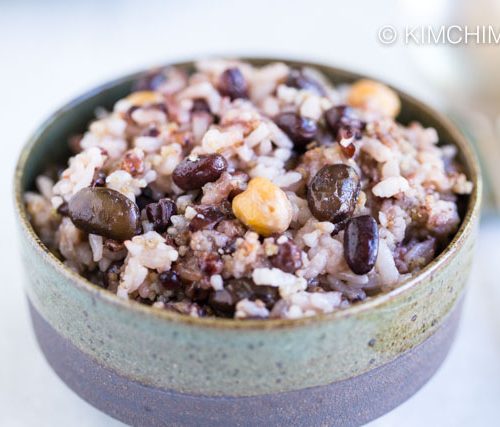What are Red Beans (Pat) ?

Red beans (Pat 팥) are a very commonly used ingredient in Korean cuisine, used not only in savory dishes, but sweets and desserts as well. They are mixed with steamed rice to make Patbap 팥밥, but most commonly they are boiled down with sugar and mashed to create red bean paste which are called Pat-ang-geum 팥앙금 . The skins are often removed to make a smoother paste which is then used as fillings for Korean pastries and desserts as well as a topping for shaved iced (Patbingsu 팥빙수).
You can also make Patjuk 팥죽 (red bean porridge) which is a traditional food to eat on Dongji Day(equivalent to winter solace) in the belief that it will ward off evil spirits and keep you safe.
Not To Be Confused With
Red kidney beans, Mung beans
Where and What To Buy
In the US, the easiest thing to find would be Red Adzuki Beans which is the same thing as the Korean red bean or Pat.
They should be available online on Amazon on my store HERE or at other Korean or Asian grocery stores.
How to Use/Cook
While most beans and definitely red beans have lectin (a form of toxin that naturally occurs in plants to protect themselves from animals), the lectin gets washed away during soaking and then is further neutralized when it’s fully cooked.
Red beans can cause some irritation for sensitive stomachs. Soak your beans overnight and pre-cook red beans if you want to make sure it doesn't cause any digestion issues for people with weak stomachs. Red beans have also been found to improve digestion due to their fiber content so if you prepare it correctly, it's good for you.
So, don’t worry about food poisoning as long as you make sure the beans are fully cooked.
You can read more about how to cook these beans in my Japgokbap (multi-grain rice) recipe post.
How to Clean/Store
Store the beans in a cool dry place. The beans are completely dry so it will keep for many months to years.
Nutrition/Health Info
- Red beans are a source of close to 29 antioxidants, are rich in fiber, vitamins and minerals like protein, folate, iron, and B Vitamins.
- The fiber and antioxidant content can also help control blood sugar levels, which can lower risk of type 2 diabetes. Studies have shown that they may also improve heart health when consumed regularly.












